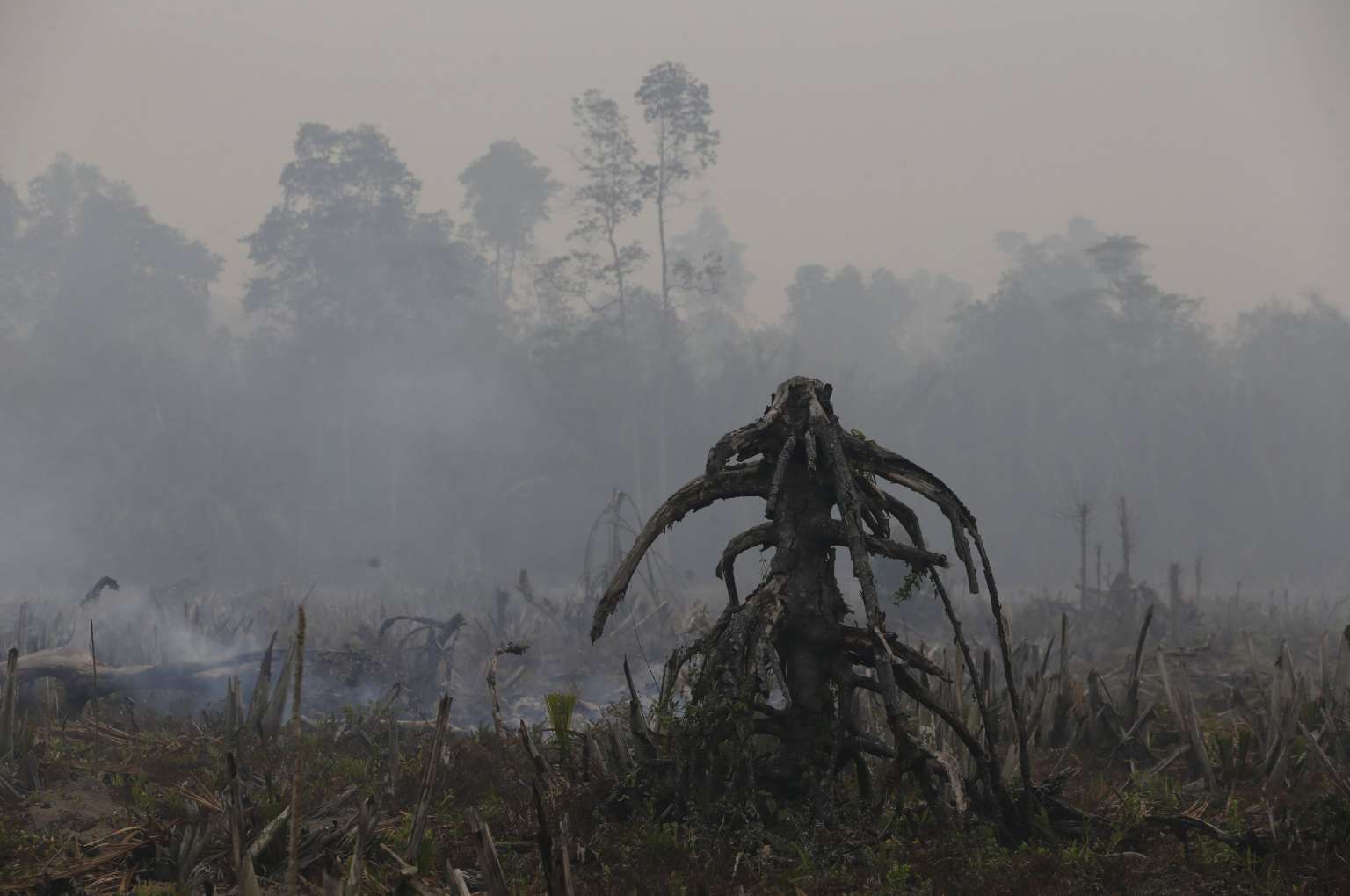Singapore Environment Council to get companies on board in tackling haze
Sign up now: Get ST's newsletters delivered to your inbox

The root of a tree is seen in a burnt palm plantation area near Tanjung Siapi Api port in Palembang, on the Indonesian island of Sumatra.
PHOTO: REUTERS
Follow topic:
SINGAPORE- Some 2,800 companies will soon receive pledge letters from the Singapore Environment Council this week to get them to commit to buying only sustainable palm oil products.
The council said on Tuesday that it is working with the Singapore Manufacturing Federation to get all its members on board in adopting green procurement practices. Such a move is aimed to exert pressure on supply sources in Indonesia to have their palm oil products certified to be from sustainable sources.
Last week, then Minister for Environment and Water Resources Vivian Balakrishnan mentioned green procurement as a way for the government to influence the supply chains. The council said they are working with the ministry on this and will start off with paper products.
"When the public agencies practice it, hopefully the private sector will follow suit," said SEC's chairman Isabella Loh.
"What is holding them back is that there is a lack of certified palm oil products in the market," she added.
For instance, only 10 per cent of palm oil products in Indonesia are certified by the Roundtable on Sustainable Palm Oil (RSPO). The council is working to raise the percentage of products that are certified to 75 per cent by coming up with its own palm oil certification scheme.
One of the five Indonesian companies believed to be causing the burning - Asia Pulp and Paper (APP)- has some of its products certified by the Singapore Green Labelling scheme run by the council. It said it has started its own separate investigation and issued the company a letter of declaration to state its sources of wood, paper and pulp products. APP has yet to respond.
The council also made a call of action for governments to relook their biodiesel subsidies that incentivise companies to grow their palm oil production. More than 30 per cent of palm oil production in Indonesia and Malaysia are diverted to make biodiesel blends. The Indonesian government tripled such subsidies to 5,000 rupiah ($0.50) per litre, from 1,500 rupiah ($0.15) per litre in May this year.
Hazy conditions in Singapore took a turn for the worse today, with air quality reaching very unhealthy levels. The 24-hour Pollutant Standards Index (PSI) entered the very unhealthy band of 142-203 at 4am, and has crept upwards since. As of 3pm, the 24-hour PSI was between 172 and 210. The three-hour PSI, which is not tied to a health advisory, stood at 246.

